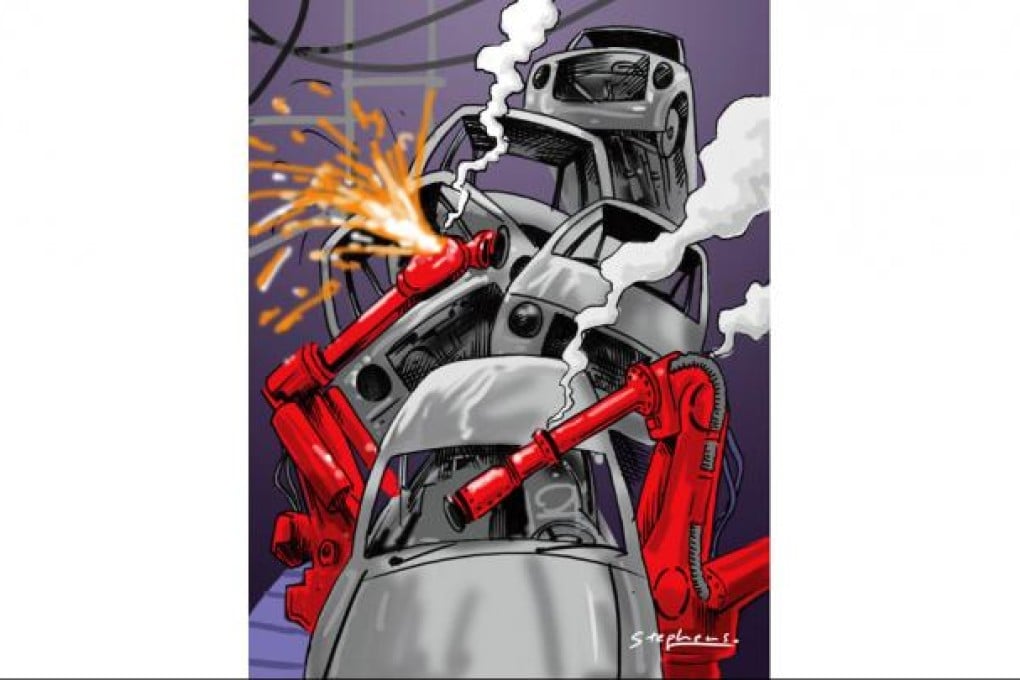Corporate China in danger of a crash
John Gong says corporate China needs a shake-up to weather the economic slowdown, and the nation's auto industry is a perfect example of a sector burdened by overcapacity and regulation

China's economy is now at a critical juncture. It seems a day does not go by without reading more news of China's slowdown. The next few months could see the various adverse forces combining to form a perfect storm.
The euro crisis has caused havoc to China's export industry. The central government is determined to curb property prices at the cost of two industries already - steel and cement. Meanwhile, the railway industry - once the engine of the government's stimulus package - is in the doldrums after the scandals surrounding its former minister, who was instrumental in many of the new construction plans. And local governments across the country are loaded with debt to finance their infrastructure projects, while revenue from land sales that used to be easy money in the boom times is quickly drying up.
At the centre of this storm lies the crumbling manufacturing sector.
China used to be called the world's factory, renowned for its manufacturing prowess. But for those with a deep understanding of the situation, the "made in China" truth is that it's all a myth. China's manufacturing sector really doesn't have much of a competitive edge, and increasingly less of a cost advantage.
The economy has one of the highest corporate tax rates in the world, while the regulatory and administrative burden imposed on corporate China in the form of various fees and charges is extraordinarily onerous. Energy and transport costs, which are fundamental to manufacturing, are also comparatively high, thanks to fat-cat state monopolies. Labour costs, which used to be China's shining star, are now rising steadily.
Moreover, China's indigenous companies are still weak, even in the domestic market, let alone internationally. The automobile industry comes to mind. Take Chery Automobile as an example. Once a poster child of China's auto industrial policy, it has been having some serious problems lately. Its share in the domestic market is sliding, while exports face challenges in the wake of renminbi appreciation. Growth has become anaemic. Its brand and dealer-network expansion initiative started two years ago has turned out to be a fiasco.
Another indigenous company, the once high-flying BYD, had vowed to be the No 1 automaker in the world by 2025. This claim, however, looks more like a joke these days. It has learned a humbling lesson that mechanical engineering is, after all, different from electrical engineering.